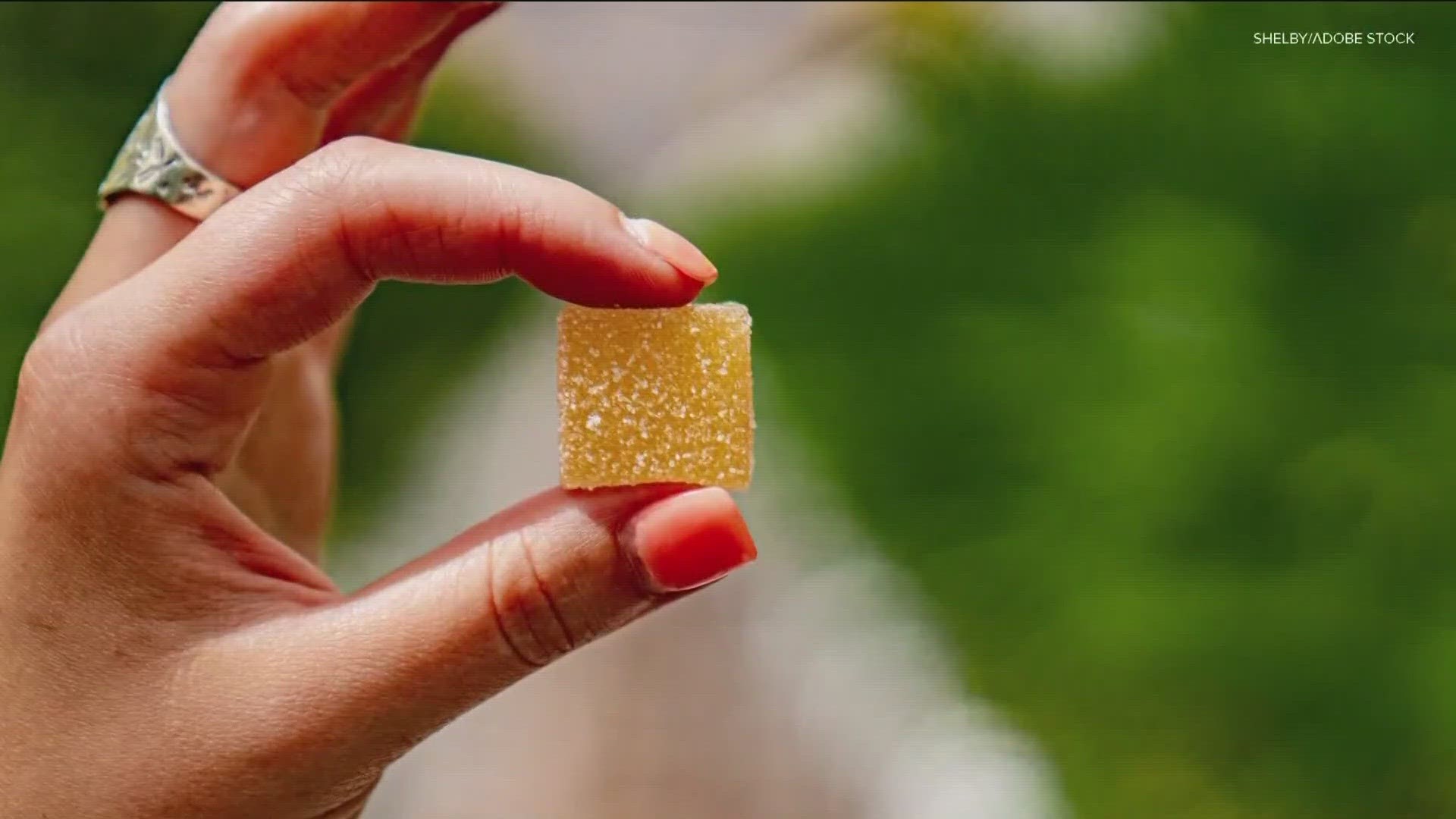ATLANTA — Following a ruling on Thursday from the Georgia Court of Appeals, business owners and users of Delta-8 (and its counterpart Delta-10) were given some clarity on the drug's legality.
The court case started after several businesses were being raided by police in recent years, claiming the product was not legal. Courts in Georgia ruled that hemp-derived cannabinoids like Delta-8 THC and Delta-10 THC are not controlled substances, potentially allowing for their legal sale in the state.
RELATED: Georgia Court of Appeals rules Delta 8, Delta 10 THC products are not controlled substances
What is Delta-8?
It's considered a cannabinoid that's frequently sold for vaping or in edible forms. It can produce a psychoactive "high" similar to cannabis, though it's considered less pronounced than Delta-9 THC.
The U.S. Food and Drug Administration (FDA) warns about the distinction between Delta-8 and other hemp products, noting that people may conflate the non-psychoactive association with hemp with Delta-8, which does produce psychoactive effects.
The FDA also says the manufacture of some Delta-8 products is not well-regulated and may contain "potentially unsafe household chemicals" as well as other chemicals to change the color.
"Manufacturing of delta-8 THC products may occur in uncontrolled or unsanitary settings, which may lead to the presence of unsafe contaminants or other potentially harmful substances," the FDA states.
It recommends keeping Delta-8 away from children and pets.
Is Delta-8 legal in Georgia?
Sort of, unofficially (it's a little complicated).
- They're de facto legal, for the most part: Generally speaking, as long as the products contain less THC concentrations below 0.3%, most jurisdictions tend to treat them as legal under Georgia's hemp legalization statutes.
- However, they're not explicitly legal under any current law: That would be changed with HB 458, which would lay out explicit regulations for cannabinoids such as Delta-8 (which is named explicitly in the legislation) to be legal so long as "the final packaged product contains equal to or less than the maximum acceptable contaminant levels set forth" (0.3% THC).
- That gap in the law creates an opening for dueling interpretations: Last year, the district attorney in Gwinnett County pursued raids, arrests and seizures tied to Delta-8 products, announcing her office considered them illegal because they aren't explicitly made legal under any Georgia law.
- That resulted in a lawsuit: The suit sought an injunction against the Gwinnett DA from pursuing Delta-8 law enforcement actions. That suit eventually was awarded the injunction in a Fulton County court, which temporarily settled the matter.
- This is where the Georgia Supreme Court decision comes in: The ruling didn't have anything to do with the debate about how to interpret state laws and Delta-8 products, but instead dismissed the lawsuit essentially on a legal technicality concerning sovereign immunity provisions (if you want more of an explanation on that, you can read more here).
- So what now?: Well, the state Supreme Court's ruling vacated the earlier Fulton County decision - and, with no other court decision specifically concerning Delta-8, that more or less puts it back in the gray area where they tend to be treated as legal, but a district attorney could still decide to prosecute it as illegal.

